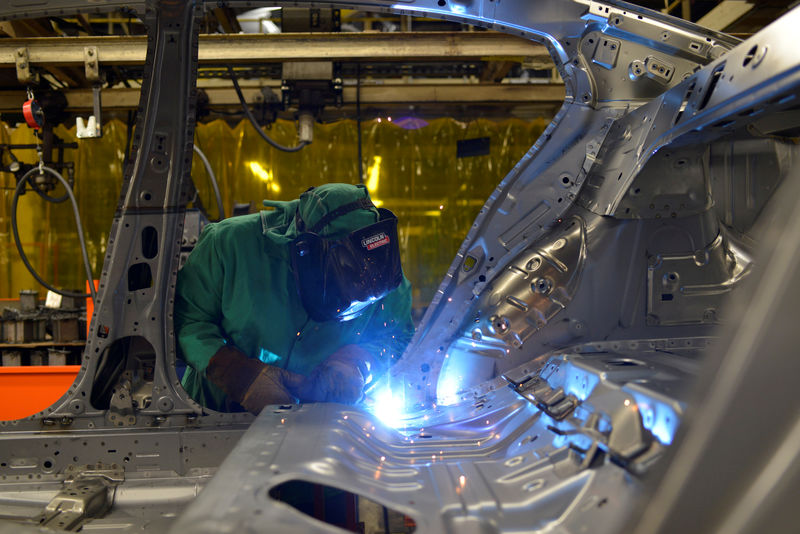By Dan Burns and Jason Lange
NEW YORK/WASHINGTON (Reuters) - Growth in U.S. manufacturing activity slowed in May to its weakest pace in over two years as factory managers raised concerns about a trade war between the United States and China, a national survey showed on Monday.
The Institute for Supply Management said its U.S. Manufacturing Purchasing Managers Index declined to 52.1 from 52.8 in April, hitting the lowest level since October 2016.
A reading above 50 indicates growth. Wall Street economists polled by Reuters expected the index to rise to 53.
A separate survey on U.S. purchasing manager sentiment by IHS Markit also pointed to slowing growth in U.S. factory activity in May.
The reports suggest that risks to the U.S. economy are rising due to a slowing global economy and U.S. President Donald Trump's efforts to overhaul America's relationship with its major trading partners.
Trump has ordered sharp tariff increases on a host of Chinese imports in 2018 and this year, while on Friday he threatened to hike tariffs on all Mexican imports unless Mexico stems the flow of unauthorized immigrants into the United States. Many U.S. factories depend on Mexican suppliers for goods assembled in America.
U.S. trading partners including China and Mexico have retaliated against Trump's tariffs with higher taxes on U.S. exports. This is also putting pressure on U.S. factories.
"The sector can't thrive when it's being hit by new taxes at random every few weeks," said Ian Shepherdson, chief economist at Pantheon Macroeconomics. "This isn't about macro, it's about the whims of a president who understands very little about how the economy actually works."
Trump says he wants to bring more manufacturing jobs to America and says trading partners have been taking advantage of the country.
ISM's factory employment index ticked higher to 53.7 after April's reading of 52.4. The index has fallen by 11% since October 2017.
Economists generally expect rising tariffs will hit corporate profits and lead to higher prices for U.S. consumers.
The ISM survey was taken before Trump threatened new tariffs on Mexico starting next month. The threat prompted a broad outcry from U.S. businesses.
Global trade tensions ratcheted higher throughout May after Trump ordered tariffs on billions of dollars of imported goods from China to rise to 25% from 10%, and progress toward a trade deal between the world's two largest economies ground to a halt.
"Respondents expressed concern with the escalation in the U.S.-China trade standoff," said Timothy Fiore, who chairs the ISM's Manufacturing Business Survey Committee.
Factories reported the weakest output growth last month since August 2016 with a production index reading of 51.3, down from 52.3 in April. New orders recovered modestly, but the backlog of orders contracted for the first time since January 2017.
Separately, U.S. construction spending, which has suffered from a slowdown in the housing market, was flat in April, the Commerce Department said. A fall in spending on private residential projects balanced with a jump in public construction outlays.
